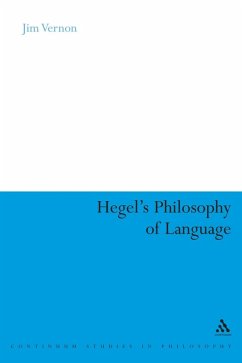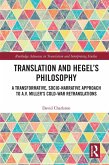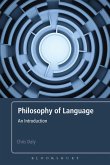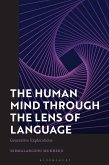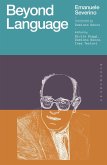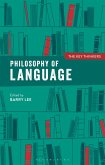In this bold new book, Jim Vernon develops the general theory of language implicitly contained in the writings of G.W.F. Hegel. Vernon offers novel readings of Hegel's central works in order to explain his views on some long neglected topics and as such demonstrates that his accounts of representation, the concept and the speculative sentence can be used to create sophisticated theories of language acquisition, universal grammar and linguistic practice. Hegel's defence of a scientific philosophy that is necessary and universal seems to eliminate the need for a philosophical linguistics. Since thought is demonstrably objective in itself, questions about the language through which it is expressed appear to be external to philosophy. This has caused many commentators to neglect the real problems that the historical and cultural associations of language pose for the adequate expression of universal thought. Others, exploiting this apparent inadequacy, have argued that the lack of rigorous linguistic analysis in Hegel's philosophy is its greatest, and perhaps fatal, flaw. Although the very idea of a Hegelian linguistics is controversial, this book argues that there are resources within the texts of Hegel for developing a general theory of language as the reciprocal grounding of a universal grammatical form and a particular lexical content. Moreover, it uses this theory to resolve the apparent tension between the necessity of Hegelian philosophy and the contingency of its linguistic expression. In the light of Hegel's critical relation to contemporary debates in Continental and Anglo-American philosophy, coupled with the central role that philosophy of language plays in both streams, this important new study offers the first comprehensive, integrated and fully developed analysis of Hegel's theory of language.
Bitte wählen Sie Ihr Anliegen aus.
Rechnungen
Retourenschein anfordern
Bestellstatus
Storno

